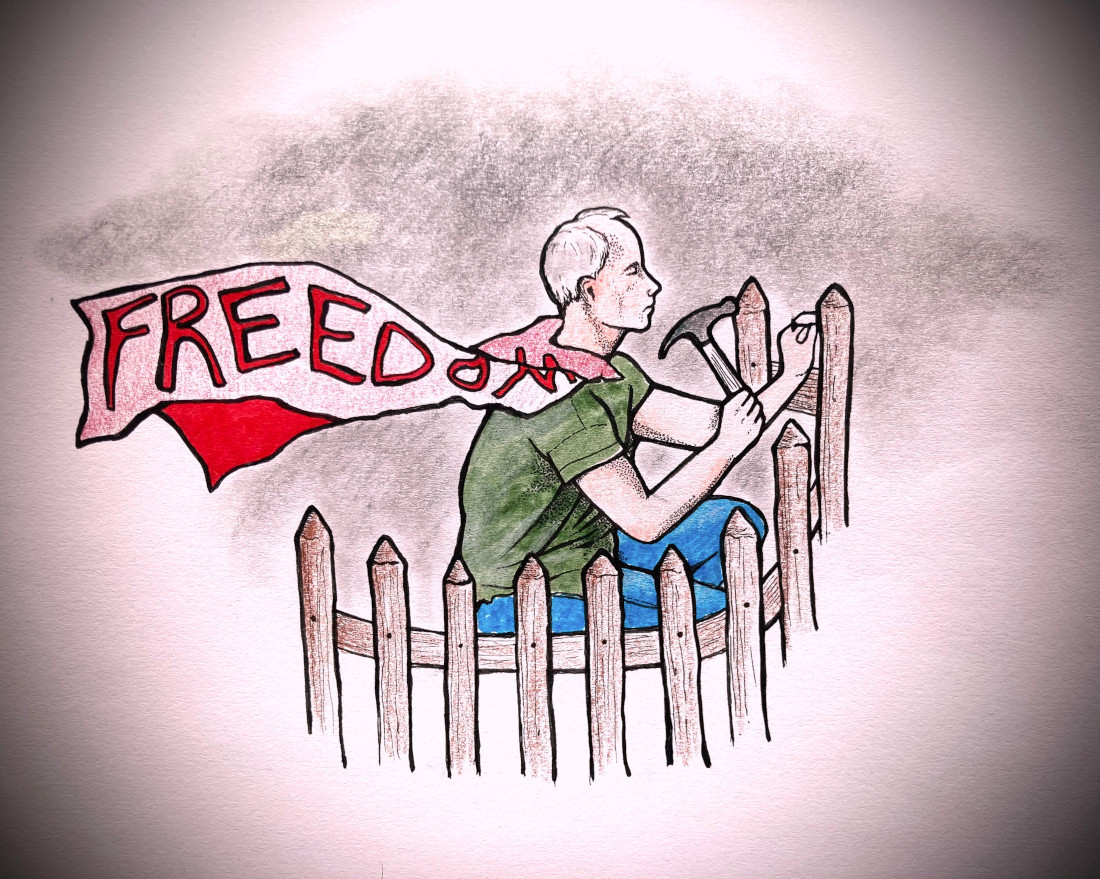CPC at a crossroads
O’Toole ousted during Freedom Convoy; Bergen named interim leader
Illustration by Gabrielle Funk
Following the ouster of Conservative Party of Canada (CPC) leader Erin O’Toole on Feb. 2, Manitoban Candice Bergen was voted by her caucus to be the party’s interim leader.
While the vote for interim leader is not necessarily representative of the CPC’s membership, it may indicate where the party is headed ideologically, especially given that O’Toole was criticized for being “liberal-lite.” Bergen is socially conservative, wants to defund the CBC and has worn a “Make America Great Again” hat.
She expressed initial support for the Freedom Convoy but has since modified her tone. As the protests continue to unfold, politicos will certainly watch the CPC’s approach.
Dr. Matthew Flisfeder is an associate professor of rhetoric and communications at the University of Winnipeg who specializes in social media, ideology and popular culture.
“The use of terms like ‘freedom’ and ‘patriotism’ are ideological but based on notions of individual and private liberty, rather than collective and social freedom or the public good,” he says in an email to The Uniter.
“Freedom, here, means lifting (constraints) and doing whatever one wants, wherever one wants,” Flisfeder says.
He notes that this is a “very limited conception of freedom that doesn’t consider how we are most free when we help each other out in a society.”
The Uniter has extensively covered the rise of the far-right in Canada, from the electoral success of the People’s Party of Canada to the growing influence of American politics to the increased “militarization” of the country. As Flisfeder notes, however, these movements do not emerge and exist in political vacuums.
“We cannot simply blame the far-right for this conception of freedom, since decades of neoliberal governance have now engrained it into our culture, which is based on individualism and competition, and which is what someone like Margaret Thatcher meant when she proclaimed that there’s no such thing as society,” he says.
Merely three days after Bergen was named interim leader, the race for the permanent leader began. Pierre Poilievre, longtime MP and right-wing firebrand, threw his hat into the ring. He has since earned more than 20 endorsements from MPs, emerging as an early frontrunner.
Evan Robinson, vice-president of the University of Winnipeg Campus Conservatives, says party members he speaks to want a strong leader.
“The criticisms of Andrew Scheer and Erin O’Toole were that they weren’t a strongman who could stand up to Trudeau in debates and oralize themselves in a really effective manner,” he says.
Robinson believes Poilievre is someone who “expresses ideas well and could communicate effectively to Canadians.”
No other candidates have declared they are running
Published in Volume 76, Number 18 of The Uniter (February 17, 2022)







